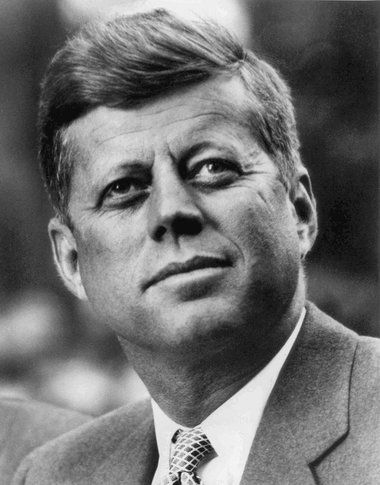Why The Continued Fascination With JFK On His Would-Be 100th Birthday?
- May 29, 2017
- 2 min read
John F. Kennedy would have turned 100 on Monday, had he beat long odds and lived that long. Comedian Bob Hope would have been 114 and founding father Patrick Henry 281 had they survived this long.
Of course, they didn’t, at least not physically. So the consolation is that Monday’s birthday in reality belongs to people like singer La Toya Jackson, basketball player Carmelo Anthony, and yours truly. I know, that’s quite a letdown.
The popular fascination with Kennedy continues almost unabated. You can’t stand in a grocery store line without eyeballing a magazine cover with his face on it. Of course, Ronald Reagan’s 100th birthday was treated much the same way, but then, that came only seven years after he passed away. Kennedy has been gone for almost 54 years, and many of us still can’t get over that.
Much of the continued attention has to do with the way he passed at age 46, the way we were robbed of his peak potential. Some of it could be due to the way he seemed to symbolize hope and youthful idealism for our nation and the world. Another factor is the many questions that still remain after his death. More than half of Americans still don’t believe the government’s conclusion that a lone assassin toppled the president. Growing up in Dallas and sharing a birthday with JFK, the topic has long fascinated me. I have spent much time researching that question, recently writing a book, Death of the Rising Sun. I lean towards the side with the continued questions.
Many lament that they, too, lost much of their innocence and youth the day JFK died. The late great Texas journalist Molly Ivins wrote that after JFK was killed, “everything went to hell. It all turned into manure.”
Many of all political stripes agreed. “The whole country changed,” said Bobby Hargis, a Dallas Police motorcycle officer who was splattered with Kennedy’s blood as he rode by his limousine. Before that day, “we believed that everything was going to be fine, even if things didn’t go right. But now, you can’t believe that.”
Journalist Jeff Greenfield likened the lesson to war. “What our parents learned in a war, or in a struggle for survival, we learned that November,” he wrote. “No one was safe; if not John Kennedy, then definitely not any of us.”
Greenfield noted the vast increase in mistrust of government and other institutions by Americans since that day. In 1964, some 77 percent trusted the U.S. government to do the right thing at least most of the time, according to a national survey. By 1974, that percentage fell to 36 percent, and increased some after the 2001 terrorist attacks before further dropping to 19 percent in 2015. Trust in banks, churches, the media, and other institutions saw similar declines.
For more on this discussion, check out the continued story on Buzzfeed here.























Comments